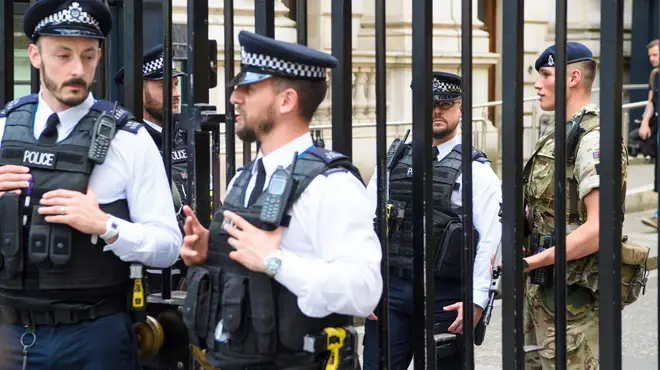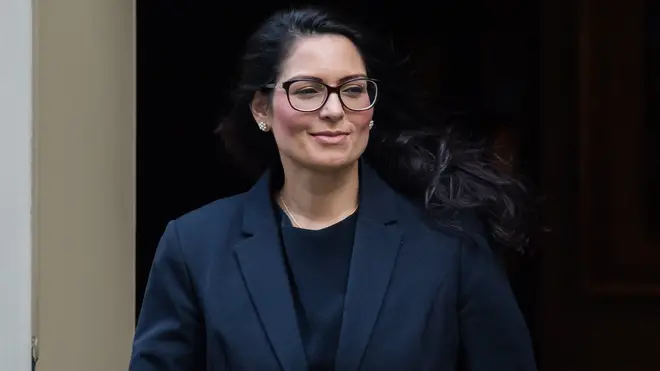
Iain Dale 10am - 1pm
4 November 2019, 15:04

The UK's terrorism threat level has been reduced from "severe" to "substantial," the Home Office has said.
Home Secretary Priti Patel announced the change but said that the UK is still at "a high level of threat" and an attack could occur "without further warning".
She also stated that terrorism remains a "direct and immediate" risk to the UK.
This is the lowest threat level since August 2014, with substantial being the third of five ratings at which the threat level can be.
It means that an attack is now "likely" rather than "highly likely", Home Secretary Priti Patel said.
The UK terror threat level was raised to "critical" in May 2017 after the Manchester Arena bombing and later downgraded to "severe".
it has remained at this level since September 2017.

The Home Secretary announced the decision in a written ministerial statement to Parliament on Monday.
In it, she said: "Despite the change in the threat level, terrorism remains one of the most direct and immediate risks to our national security.
"Substantial continues to indicate a high level of threat; and an attack might well occur without further warning.
It continued: "As ever, the public should remain vigilant and report any concerns they may have to the police.
"Government, police and intelligence agencies will continue to work tirelessly to address the threat posed by terrorism in all its forms. The threat level is kept under constant review."
The Joint Terrorism Analysis Centre (JTAC), which is a part of MI5, sets the threat level.
It uses intelligence, including about known terrorist groups, to make a judgement on the threat level independently of Government ministers.
A review is carried out every six months.
The news comes after the general who oversaw the US raid on ISIS leader Abu Bakr al-Baghdadi said the country must be on alert for possible "retribution attacks" by extremists.
Richard Kemp, former head of international terrorism intelligence at the Cabinet Office, also reportedly warned said security services would now be "braced for attempts to avenge his death."
Rafaello Pantucci, a terrorism expert and director at the Royal United Services Institute thinktank, is said to have claimed: "The most immediate concern will be that major terrorism events often prompt actions by copycats or in revenge."
Head of Counter Terrorism Policing, Assistant Commissioner Neil Basu, says: "The reduction to ‘Substantial’ indicates positive developments in reducing the threat from terrorism but still means an attack is likely.
"Counter Terrorism Policing has around 800 live CT investigations nationally and 24 attack plots have been thwarted since the atrocity in Westminster in March 2017.
"So it is vital that we all maintain a high level of vigilance and continue to invest in strong protective security measures to deter future attacks.
"Police need the continued support of the public and all our partners.
"The festive period is fast approaching and, coupled with an election, our towns and cities will be extremely busy.
"So we appeal to everyone to please remain vigilant and if you see something that doesn’t seem right, act and contact police at gov.uk/ACT. In an emergency always call 999.
"Officers will continue to monitor the threat locally and respond appropriately. There will not be any change to our levels of commitment when it comes to protecting our communities."